EnviroThursday Spring 2025
Contact
Environmental StudiesOlin-Rice Science Center, Room 249 651-696-6274
esson@macalester.edu
instagram twitter
Presentations take place at 12 noon, Olin-Rice Room 350
January 30, 2025
“A Nation Takes Place: Contemporary Art and Maritime Histories”

Speaker: Tia-Simone Gardner, Assistant Professor of Media and Cultural Studies at Macalester College
In this talk Professor Tia-Simone Gardner will talk about the project she co-curated, A Nation Takes Place, at the Minnesota Marine Art Museum. The exhibition examines the ways that contemporary artists, particularly artists of color, continue to call our attention to the power, ecologies and economies of water.
Prof. Gardner is an interdisciplinary artist, educator, and undisciplined Black feminist geographer, committed to understanding relationships between Blackness and landscape. She is a 2023–24 McKnight Visual Artist Fellow and a 2024 Anonymous was a Woman Environmental Artist Grantee.. Her photography and moving image work has shown both nationally and internationally, and her co-curated exhibition, A Nation Takes Place, is currently on view at the Minnesota Marine Art Museum in Winona, Minnesota.
February 6, 2025
“From the Educator Elite to Foot Soldiers in the Street”
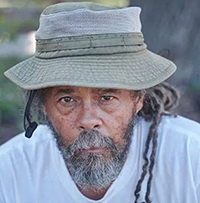
Speaker: Elder Michael Chaney, poet and urban farmer organizer in North Minneapolis
Urban farming is the current iteration of the Civil Rights Movement. How do we build power for racial and environmental justice through education? What’s the role of university students in social movements of today? How can Macalester increase its involvement in the Twin Cities community and interrogate our legacy and history? This student-led EnviroThursday will be both a poetry performance and a conversation asking these questions with Elder Michael Chaney, a prolific poet and urban farmer organizer in North Minneapolis.
This event is part of the Elder in Residence program funded by Macalester’s Racial Justice Project Fund. By connecting Macalester with a prominent local Black elder on the frontlines of environmental challenges, the program promotes knowledge of land stewardship, self-determination, and resilience practices in times of political and climate uncertainties.
Michael Chaney is the founder of Project Sweetie Pie and a co-founder of TheFamilyOfTrees.org and Growing North Minneapolis. Project Sweetie Pie is a local nonprofit organization founded in 2010 that engages stakeholders in grassroots initiatives to address issues of structural racism and equity, advocates community-led green restorative development and coordinates youth-led/youth-fed green initiatives and other gardening and urban farming operations. He has become the Johnny Appleseed of urban farming in North Minneapolis and is also a member of the North Side Green Zone Task Force.
February 13, 2025
No EnviroThursday – ES Majors and Minors Lunch
February 20, 2025
“Consequences of Emerald Ash Borer in Tribal Forest”
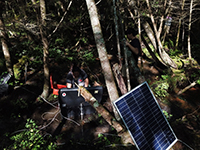
Speaker: Angela Waupochick, Ph.D. student, University of Wisconsin-Madison
The Tribal forests of the Menominee and Stockbridge-Munsee Communities in northeast Wisconsin encompass an estimated 60,000 acres of black ash-dominated stands. These areas serve as culturally and ecologically vital habitats that regulate local water cycles. The emerald ash borer is an invasive pest responsible for causing widespread mortality in black ash systems across most regions in which it exists. Mitigating these impacts is particularly challenging for tribal communities, as management resources are inadequate to address both immediate and long-term effects.
Angela Waupochick has a strong background in forestry and water resources management and has held various tribal and federal positions across the country. She is currently pursuing a Ph.D. at the University of Wisconsin-Madison, Nelson Institute of Environmental Studies, where she studies the hydrological effects of Emerald ash borer in tribal black ash forests. She keeps her family home in Keshena, WI, but recently relocated to Nashville, TN, for a new position serving tribal communities in climate adaptation and planning.
This event is sponsored by the Macalester Native and Indigenous Initiative (MNI).
February 27, 2025
No EnviroThursday
March 6, 2025
FOOD, AGRICULTURE, AND SOCIETY SPRING LECTURE
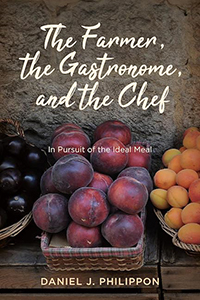
“The Farmer, the Gastronome, and the Chef: In Pursuit of the Ideal Meal”
Speaker: Daniel Philippon
Professor Daniel Philippon will share his new book (University of Virginia Press, 2024) exploring sustainable food systems and the impact of writers Wendell Berry, Carlo Petrini, and Alice Waters. In the book, Philippon explores how writers and activists Wendell Berry, Carlo Petrini, and Alice Waters have changed America’s relationship with food over the past 50 years. In pursuit of his own “ideal meal,” Philippon planted and harvested vegetables in central Wisconsin, spoke with growers and food producers in northern Italy, and visited with chefs and restaurateurs in southeastern France.
Daniel Philippon is the author of Conserving Words: How American Nature Writers Shaped the Environmental Movement. He is past president of the Association for the Study of Literature and Environment (ASLE) and has served as Senior Fellow at the Rachel Carson Center for Environment and Society in Germany, Fulbright Scholar at the University of Turin and University of Gastronomic Sciences in Italy, and Visiting Professor at the École Normale Supérieure de Lyon in France. His teaching on environmental humanities, literary nonfiction writing, and sustainability studies has been honored with the Horace T. Morse–University of Minnesota Alumni Association Award for Outstanding Contributions to Undergraduate Education and the College of Liberal Arts Arthur “Red” Motley Exemplary Teaching Award.
This presentation is co-sponsored by the Food, Agriculture and Society Concentration and the Environmental Studies Department.
March 13, 2025
No EnviroThursday
March 20 2025
No EnviroThursday – Spring Break
March 27, 2025
“An Unsettling Climate”
Speaker: Dr. John Drake, Climate Research Consultant with Global Reviews
With the US out of the Paris Climate Accord (Again), researchers face uncertain and unsettling times. For students and teachers, what and how we study will likely change. This talk opens a conversation relating stories of other challenging times from the perspective of several climate researcher’s personal experiences. Controlling the narrative, political interference in science, speaking the truth, carrying on or quitting, are again familiar themes in the news and in the personal lives of many present day researchers. With some historical perspective, and discussion about how current researchers are coping, perhaps we can entertain a long view of climate science and other important inquiries.
Dr. John Drake was group leader of the Computational Earth Sciences Group in the Computer Sciences and Mathematics Division at Oak Ridge National Laboratory (ORNL). After retiring from the ORNL, he has pursued research, teaching and project consulting at the University of Tennessee in the Civil and Environmental Engineering Department. He received his Ph.D in Mathematics from the University of Tennessee in 1991.
Dr. Drake joined the Computer Sciences and Mathematics Division at ORNL in 1984 as part of the Mathematics Group. Previous research was on viscoelastic and fluid flows associated with gas centrifuges and he also served as site numerical methods consultant. His areas of expertise are mathematical methods, numerical simulation and fluid dynamics. He is an author on over 60 professional papers and 30 technical reports, and guest editor of special issues of Parallel Computing and The International Journal of High Performance Computing and Applications. A graduate textbook Climate Modeling for Scientists and Engineers was published by SIAM in 2014 based on courses he offered at the University of Tennessee.
This EnviroThursday is co-sponsored by the Environmental Studies and Political Science Departments.
April 3, 2025
“EnviroThursday Waste Sorting Event”
12 noon – Olin-Rice 243
The Environmental Studies Department and the Sustainability Office will be hosting a waste sort. All are welcome to come help as we sort through the trash, compost, and recycling. Waste sorts are helpful to provide perspective of how well we are doing as a campus in our waste reduction and diversion efforts! If you have never participated in a waste sort on campus, then this is a great opportunity to learn the process!
April 3, 2025
20th Anniversary Environmental Studies Distinguished Speaker and Symposium
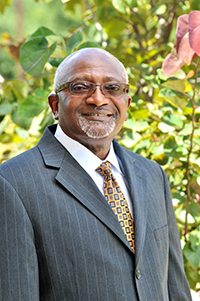
4:45 – 7 p.m., Alexander G. Hill Ballroom, Kagin Commons
Macalester College’s Environmental Studies Department is celebrating its 20th anniversary this year. To mark the occasion, we are hosting a 20th Anniversary symposium titled “The Quest for Environmental and Climate Justice: Why Equity Matters”.
The event features a return keynote address from Dr. Robert Bullard, long regarded as the father of the environmental justice movement. Bullard last addressed the Environmental Studies community in April 2005 at the time the department was established. This will be followed by an alumni panel of Environmental Studies graduates working to advance environmental justice.
Join us in celebration as we highlight the many faculty, students, and partners who have engaged in environmental justice research, teaching, and community practice.
4:45-5:30 pm: Reception
5:30 pm: Robert Bullard keynote address followed by alumni panel
This event is in collaboration with the Macalester Program Board, Institutional Equity, Community Engagement Center, and ReConnect Rondo.
April 10, 2025
No EnviroThursday
April 17, 2025
“Being Green in a Red State: Environmental Research and Advocacy in Alabama”
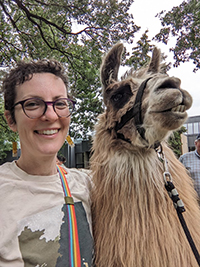
Speaker: Susan Caplow, Assoc. Professor and Department Chair, Earth, Environment and Society, St. Thomas University
Environmental advocates in Alabama face considerable challenges as well as exciting opportunities. On one hand, Alabama is #1 in the nation for freshwater biodiversity and features mountains, coastline, and everything in between. On the other hand, Alabama’s environmental treasures face significant threats from a lack of strong regulation, largely a symptom of significant political opposition to environmental protection. This presentation will weave together Dr. Caplow’s personal experiences with those of other environmental advocates in Alabama to describe the experience of being “green in a red state.” How does the political, physical, and cultural context shape strategies, motivations, goal setting, and collaboration opportunities for environmental advocates in Alabama?
Dr. Susan Caplow is an associate professor and department chair of Earth, Environment, and Society at the University of St. Thomas in St. Paul, MN. She recently assumed this role after 10 years as environmental studies program and sustainability coordinator at University of Montevallo in Alabama. She received her Ph.D. in Environment and Ecology from UNC-Chapel Hill, her M.Sc. in Environmental Sciences and Policy from Central European University, and her B.A. in Public Policy Analysis/Biology from Pomona College. Dr. Caplow’s teaching and research explore the interface between humans and the environment, focusing in particular on sustainability, policy, education, and project-based learning.
April 22, 2025 – EnviroTuesday
Environmental Studies Honors Presentations
Olin-Rice 243
“Spatio-Temporal Analysis of Human-Carnivore Conflict in the Tarangire-Manyara Ecosystem, Tanzania”
by Sophie Carpenter ’25
Livestock depredation by large carnivores significantly threatens human livelihoods across the globe, with severe ecological and socioeconomic implications. Economic costs of livestock depredation impact tolerance of carnivores among communities living alongside wildlife, often straining human-carnivore coexistence. Using geographic and temporal attributes from livestock depredation records (n=406) between 2004 and 2023, we identified spatiotemporal patterns of predation by African lions, leopards, and spotted hyenas in the Tarangire-Manyara Ecosystem in northern Tanzania. Significant relationships were found between the number of attacks reported and season, time of day, and site of attack. To better understand the ecogeographic factors influencing livestock predation probability, predictive analysis further focused on data from 2019-2023. Maximum Entropy modeling was used to compare GPS locations of reported predation events to eleven environmental layers. Predictive models were produced with total predation data from all three species, as well as separate models for each individual predator species. Across all models, likelihood of livestock predation was higher between Tarangire National Park and Lake Manyara, including Burunge Wildlife Management Area. Terrain topography and distance to protected areas were key variables for depredation likelihood for all the carnivore species. Our results highlight different livestock-predation hotspots for the three carnivores, which seemingly follows the different ecologies and spatial preferences of lions, leopards and hyenas. An understanding of these hotspots could inform strategic efforts towards human-carnivore conflict mitigation in this critical biodiverse area.
“Responsibility to the Land: Perspectives of Farmers on Climate Change and Land Transition”
by Meria Smit ’25
Agriculture is a defining aspect of Minnesota and Wisconsin’s culture and identity, characterized by family farms, rolling hills blanketed with crops, and cows. Interspersed are small scale diversified farms and a growing number of emerging and young farmers. Another cultural mainstay is talking about weather, a ubiquitous conversation of Midwesterners. As weather events such as erratic rainfall, drought, and pest pressure become both more common and volatile, and long-term weather patterns shift from “normal”, it is important to ask farmers what they think about it. Adapting to changes and planning for resilience are what farmers have always done, yet increasing pressures including climate change and uncertain generational transition make adaptation difficult. This thesis examines Minnesota and Wisconsin farmers’ perspectives on climate change and experiences with the land, as well as their speculation about the future of agriculture in the region. Through eleven in-depth interviews with farmers, relationships between me and the farmers were created or strengthened. While most farmers named and acknowledged climate change, not everyone was concerned about it. All agreed that environmental conservation through farming practices was essential to their economic success and their ethical responsibility to the land. They hoped their land and farming practices could be passed on to the next generation rather than large farms consolidating farm land. Overall, this thesis emphasizes the need for listening to and understanding the diverse perspectives of Midwestern farmers in order to support and create opportunities for transitions for climate resilience.
April 24, 2025
“Bad River” Film Screening
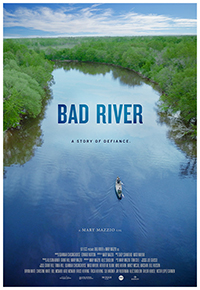
BAD RIVER, narrated by Quannah ChasingHorse and Academy-Award nominee, Edward Norton; written and directed by award-winning filmmaker, Mary Mazzio; and produced by Grant Hill (Owner of the Atlanta Hawks) and Allison Abner (writer for Narcos, West Wing and descendant of the Stockbridge Munsee Band), is a new documentary film which chronicles the Wisconsin-based Bad River Band and its ongoing fight for sovereignty, a story which unfolds in a groundbreaking way through a series of shocking revelations, devastating losses, and a powerful legacy of defiance and resilience, which includes a David vs. Goliath battle to save Lake Superior, the largest freshwater resource in America. As Eldred Corbine, a Bad River Tribal Elder declares: “We gotta protect it… die for it, if we have to.”